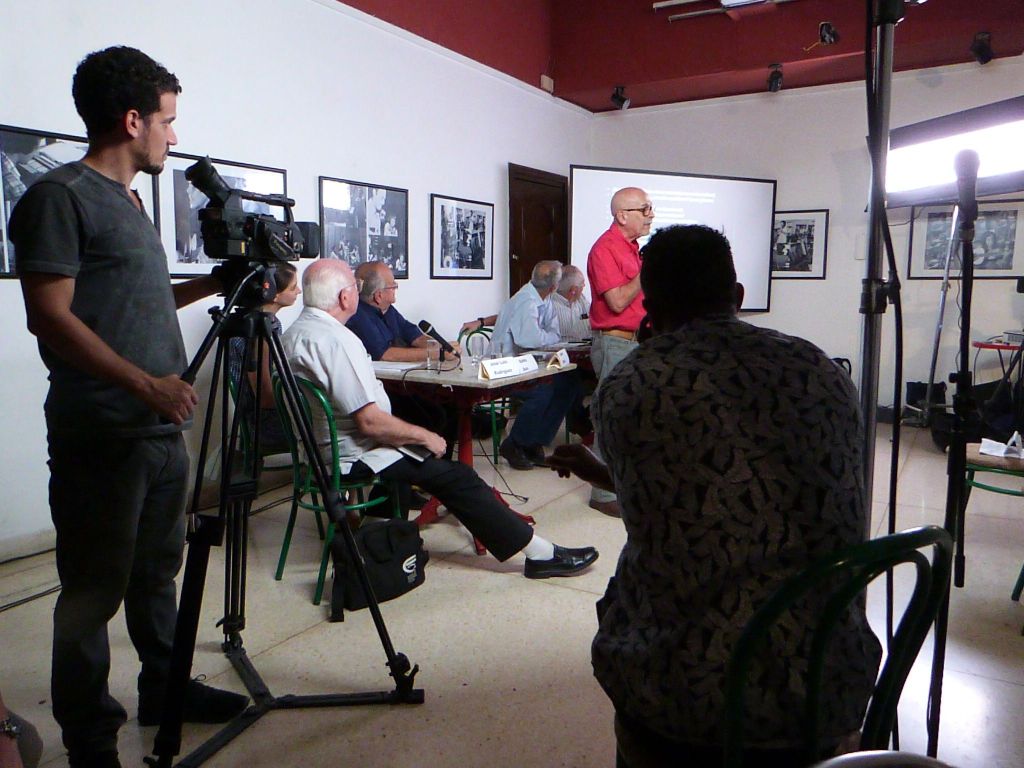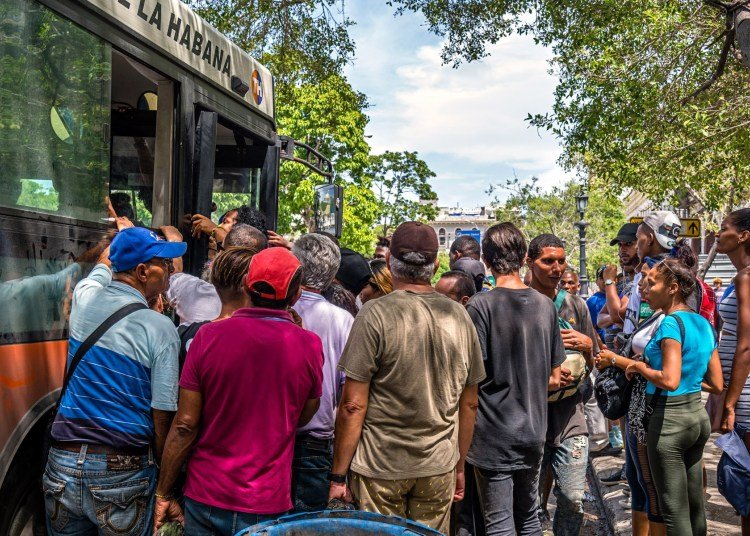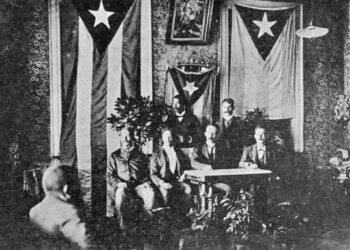A former minister of economy who speaks of an excess of control over management; a professor who describes the almost broken down state socialist enterprise that works based on a financial lie; a journalist who disagrees with such absolutisms; a self-employed person who complains about limitations; an official who defends central planning without crushing the market; and an economist who asks for courage and humility to accept that the model has had defects from the start.
The most recent Último jueves of the year of the magazine Temas was great.
Under the Jules Verne title of “Voyage to the center of the model,” the current Cuban economic system underwent a dissection, finding many pathologies: structural paradoxes, old mentality, over-bureaucracy, disarticulation of productive actors, countersteps, uncertain perspectives of the course, exacerbated regulations, institutional inconsistencies and handbook dogmas.
And if that were not enough, all this syndrome is aggravated by external diseases.
A scattered, wounded and harassed regional left and a Washington trying to implode the walls of the Cuban system with the pistons of the machinery of the full-scale blockade, have managed to further unbalance the model and disrupt its desired lines of coherence and action.
Already in September of this year U.S. pressures managed to put the island’s energy in tenterhooks and not a week goes by without new sanctions from a perfidious punitive imagination that damages third countries.
Call to action tactics
“We are in a really critical situation,” said José Luis Rodríguez, one of the six panelists invited to the debate.
Minister of economy during the most serious years of the Special Period, Rodríguez weighed up a picture of financial and energy deficits, “in terms of many things.”
That scenario, which the government described as temporary for it to be assimilated as surmountable in the short term, made it necessary “to make decisions to survive this stage just as was done in the Special Period,” was the comparison made by the current advisor to the World Economy Research Center.
“It’s necessary to look for foreign currencies by virtually any means, with the costs it has, but there are no other alternatives,” justified the academic alluding to the assessments of economist Tania García, who said she could not “share” a process of redollarization in the monetary circulation
“We already lived that soap opera,” said the expert of the Juan Marinello Cuban Institute of Cultural Research.
To stop a capital bleed, valued at about one billion dollars, the Cuban State implemented in October a system of selling medium and high-range items, at competitive prices and in freely convertible currency through a bank deposit in foreign currencies.
Such goods were acquired massively by travelers-merchants in foreign markets to alleviate shortages and high prices in CUC in the domestic market. Taking advantage of that opening, that parallel market grew in reselling through the social media. These Cubans’ dollars stayed abroad.
After the opening of the new stores, which are intended to be a bypass to reduce street trade and retain foreign exchange, the sustainability and expanded reproduction of the new dollarized market and how this will be consistently inserted in the economic policies of the island, leads to other questions on the agenda of the experts.
Urban cooperatives: traffic light is never green
Economist Raúl Cruz represents the model as a fishing net.
“Until we are able to join and sew the holes, the model’s efficiency will escape through them,” said in Último jueves this professor and director of the School of Management of the Ministry of Industries.
Although for Cruz the backbone of the model must be centralized planning, such a design must be correlated with a market―“whether or not the State, which often has complexes, is there acting”―, resolving the exchange rate distortion of state enterprises―“the Cuban peso is equal to the dollar”―and the relaunching of non-agricultural cooperatives, “which are a bit feared,” but that many emerge from “bankrupt state-owned enterprises,” which “suddenly are unhampered and start being productive and credible.”
For sociologist Ricardo Machado, these entities exhibit a low mortality rate, 12 percent, but the coming into force of new regulations, according to the academic, are “a blow to the cooperatives. A great deal of them will collapse,” he predicted.
These cooperatives, approved bit by bit and totaling about 400 throughout the country, will have a growth ceiling in their employment, territorial limitations in some cases and none will have direct import licenses.
“In general, the main incidents that have been detected include the misappropriation of resources and income and corruption,” an official source said in September, announcing that “no new cooperatives will be created at this stage, since the priority is to concentrate efforts on the consolidation of existing ones.”
The private and state sectors in straitjackets
Marta Deus, a young Cuban entrepreneur repatriated from Spain, decided to try her luck in the Cuba of the 21st century. She heads Deus Accounting Experts, a business consultancy that advises private or collective initiatives.
“In the case of cooperatives, I have thousands of persons who submitted projects and didn’t get anywhere because they were shelved in the Ministry of Labor. We ask for greater communication with the government because we don’t have it,” said Deus, a Master in Business Administration and Management and one of the panelists.
The expert suggests that in the event of a SME law “it should have many social requirements, for benefits to the worker, the community and the environment” and asks that the private sector not be labeled as “nouveau riche, but that we are persons who want to do things for the community and that we have legal limitations to do it.”
But straitjackets don’t seem to be only in fashion among private entrepreneurs.
The biologist, with postgraduate studies in business administration, Oniel Díaz, of Auge Consultancy, founded in 2014, said that both private and state-owned enterprises share common problems: inefficient legal framework full of gaps, foreign trade restriction, access to wholesale markets and bureaucracy.
“There is a mismatch between reality and what you want to do with the model, and that leads to something even worse and it is the mismatch between laws and reality which causes chaos,” Díaz warned.
A veteran of economic journalism, Ariel Terrero, accepted that there are “multiple obstacles” to the management of state entrepreneurship, but refused to declare it absolutely inept.
“There are no current conditions to judge state efficiency. We would make a very big mistake if we do it. There are examples of efficiency with excellent results,” said the also director of Havana’s José Martí International Institute of Journalism.
The young economist Ricardo Torres demanded evidence instead of rhetoric. “The efficiency of the socialist state enterprise has to be demonstrated in practice” and wondered why at the institutional level it is considered “the dominant element in the economy.”
A voyage to the unknown
Terrero joined the voices asking to “step on the accelerator” of the economic reform. “Delay will not avoid the risks we are running” and predicted that “there will be probable shocks of the model” once the monetary unification is implemented.
“To begin to straighten the present situation, we must look for a monetary and exchange rate organization. It is the fundamental actor, but not enough,” said Lázaro Toirac, an advisor to the Ministry of Economy and Planning and another panelist on Último jueves.
Speaking in a personal capacity, Toirac said that the process, which involves a salary reform, a security and social assistance reform, a reorganization of prices and a complete rearrangement of subsidies, “is a voyage to the unknown.”
Planning and market, close enemies?
“Central planning failed and will continue to fail. There is an excess of bureaucracy in our management system and it will continue until we change it,” said economist Juan Triana.
His conceptual radicalness, however, did not overrule planning per se. “Development is not achieved on unplanned bases, but we have to change the concept. Either we respect the laws of the market or the laws overrun us,” warned the professor and researcher of the Faculty of Economics and an OnCuba columnist.
Toirac, for his part, reconciled: “Central planning as an instrument has not responded…because as an instrument it came to the aid” of a non-existent market and replaced the function of money, “but as a concept we can’t renounce” its strategic value.
For José Luis Rodríguez, the model suffers from visions filtered by political apprehensions. “The market is recognized, but we don’t want to accept that the market has its laws and we want to regulate it administratively.”
“Our management system is full of control measures, not management measures. It is an absurd control,” said the expert.
In line with Rodríguez, researcher Ricardo Torres criticized an “overwhelming normative and legislative hypertrophy.”
“It seems there is blind faith in the administrative instruments in solving the problems,” said Torres, who asked for the same regimen of opportunities for all economic actors. “Level the playing field and we’ll see what each is capable of doing,” he said.
“Until when can we sustain a huge bureaucracy with a country that has depressed levels of productivity?” he asked and demanded to accept that the model suffers from “accumulated distortions that are part of the problem and not the solution.”
A toast to the debate
Nearly 200 persons filled the auditorium of the Fresa y Chocolate cultural center last Thursday. It was a multigenerational and dissenting audience that Rafael Hernández, a sociologist and founder of the magazine Temas, appreciated 18 years after starting the experience of Último jueves, in which he has tried to prevent, with a lot of professional tact, its becoming “a wailing wall.”
“We don’t do Último jueves to recommend to the government what it should do. We do it as an exercise of knowledge and collective reflection,” said Hernández before inviting everyone present to celebrate, as good Cubans, the almost two decades of the space with a drink of rum.














